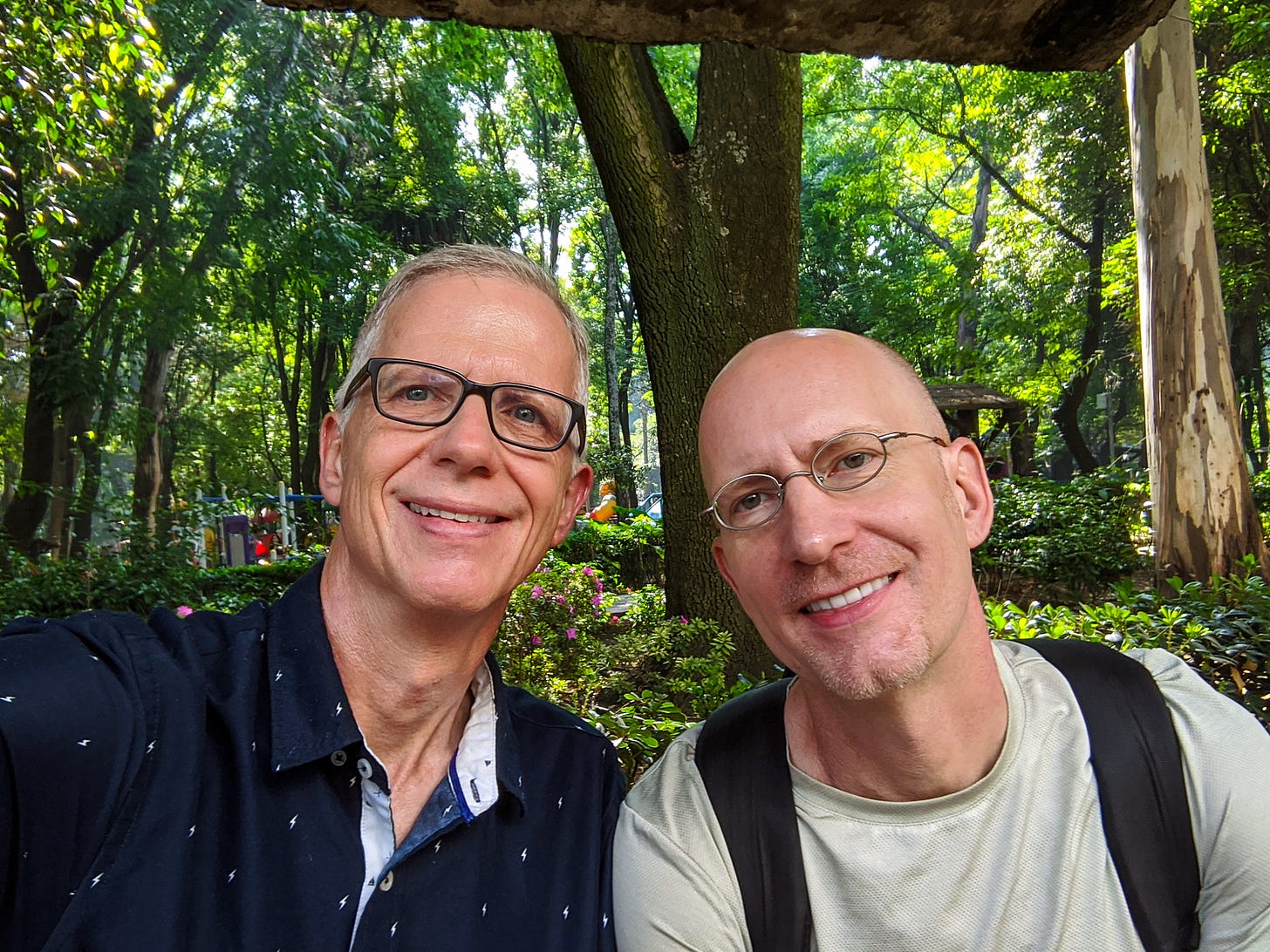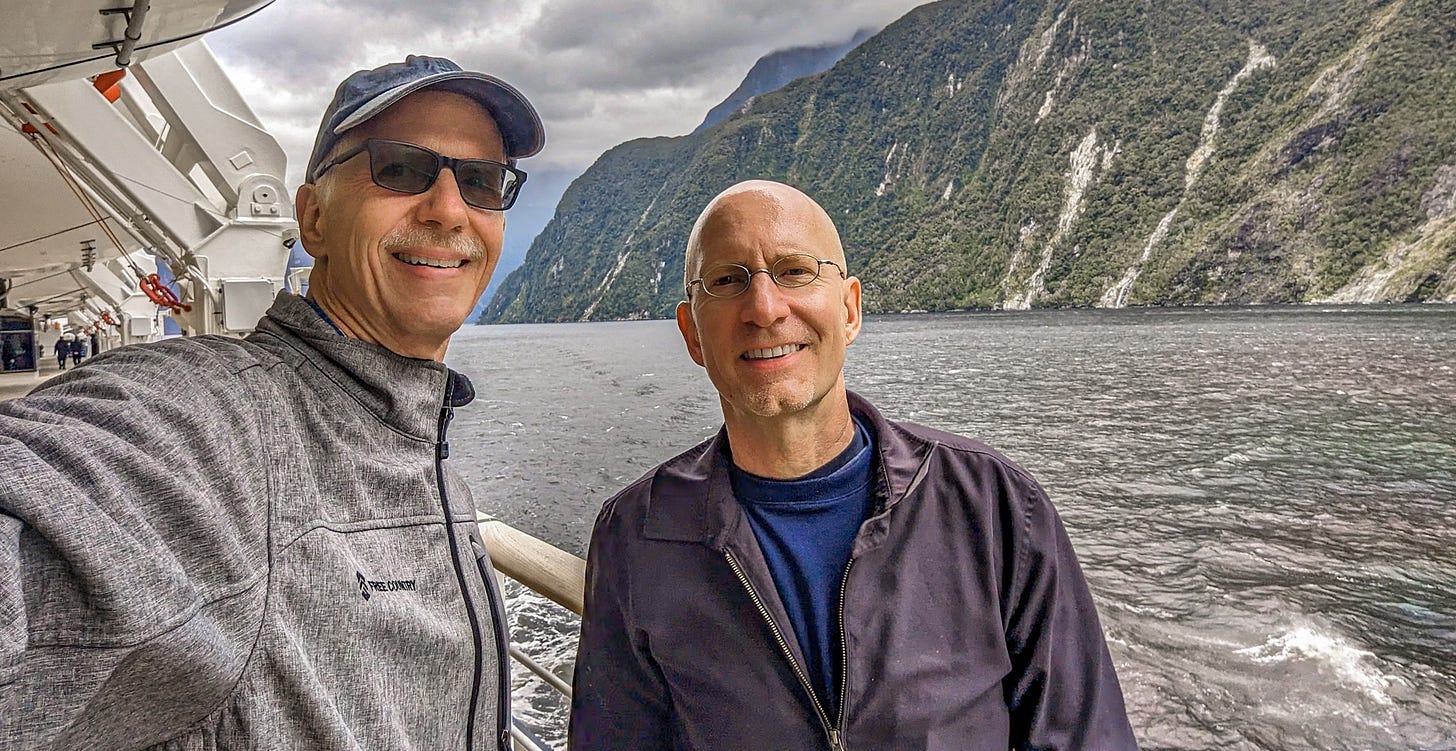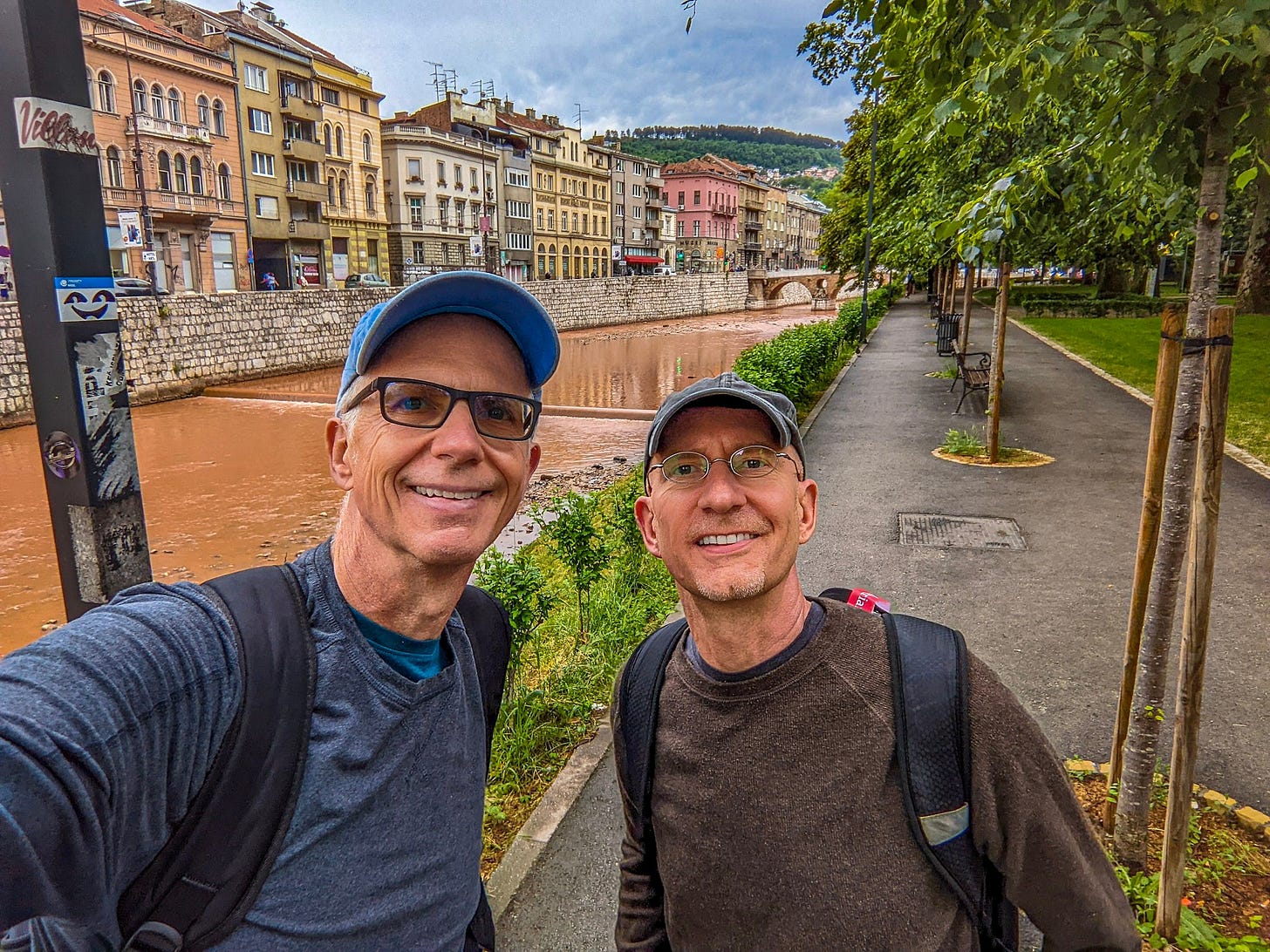Looking to Leave America After the Election? Consider Nomading Over Emigration
It's easy, affordable — and reversible.
When Donald Trump ran for President of the United States in 2016, many people vowed to leave the country if he won.
Not many did — less than twenty thousand, by some estimates.
But the two of us were among those who went through with it. Trump’s 2016 election wasn’t the only reason we left America to travel the world as nomads. But it seemed to us to indicate a country in steep decline.
Since Donald Trump’s re-election last week, it seems like more Americans than ever are talking about getting out.
You might think such talk is silly or hysterical — or cowardly. That the only acceptable option is to stay and fight for the soul of America.
If you think any of this, this article is not for you. We believe that where a person chooses to live is an extremely personal decision and that it’s okay if they want to live somewhere that more closely reflects their fundamental values.
However, emigration to another country is complicated and expensive.
For some people, there is a better solution: do what we’ve done and become nomads.
For almost eight years, the two of us have traveled the world on “tourist visas,” staying in different countries for as long as our visas allow — usually two to three months — before moving on to a new country.
And with the rising popularity of “digital nomads” like us, many countries have begun offering “nomad visas,” which allow people to stay even longer, sometimes up to a year.
It’s true that nomading requires a person to either be retired or able to work remotely. It also assumes a certain degree of personal fortitude and flexibility — although not nearly as much as most people think.
But here are four practical reasons why, when it comes to leaving America, nomading may be a better choice than emigrating:
1) It's much easier than permanently moving to another country.
Moving to another country really is complicated and expensive. You have to figure out how to get a long-term visa or residency status and deal with housing, healthcare, and financial matters, including local tax liabilities, which may be higher than in America. There’s also the question of unraveling all those issues back home.
And this doesn’t even touch on the cultural issues. Will you need to learn a new language? Will you fit in and make friends? Will you like your new country?
When nomading, you don’t have to deal with any of this. If you don’t like a country or culture, you can just leave.
Sure, you’ll have to figure out what to do with most of your “stuff” — and possibly your physical home, if you own it. But if you’re emigrating, you’ll have to do that anyway.
You’ll also have to figure out healthcare as a nomad. But the American healthcare system is currently so insane that dealing with healthcare as a nomad is less complicated and scary than figuring it out in America — and much cheaper too.
2) You can see what happens in America before committing to anything.
Okay, look: we think the reelection of Donald Trump was a huge deal — much bigger than most Americans realize. It’s possible that voters just chose to replace our liberal democracy with what is essentially fascist authoritarianism.
But come on, no one knows exactly what’s going to happen. Maybe Trump will surprise those of us who oppose him. Or perhaps the Republican Party will be so shocked that they (finally) choose to restrain him in ways that prevent full-on authoritarianism. And one way or another, the American public will ultimately weigh in on things again too.
So why not wait and see?
If things are bad in a few years, you can choose to make a more permanent break. And if things aren’t as bad as you expect, you can move back home again, no harm, no foul.
3) You can use your time as a nomad to figure out where you want to eventually settle down.
When we left America almost eight years ago, we were both fairly well-traveled. But we now see there was a lot we didn’t know we didn’t know.
Looking back, we think it would have been ridiculous for us to immediately choose one country to settle down in. For one thing, we didn’t know enough about the world to have any sense of comparison between different places. For another thing, we now understand that you don’t really “know” a place until you’ve lived there for at least six months — and probably longer.
With nomading, you solve both these problems. After you visit enough destinations, you start to understand what you do and don’t like in a city or culture — the things you weren’t conscious of before.
You’ll also gravitate to the countries and cities where you feel most at home.
When we left America, we assumed the places we’d love would be almost solely about the “big” things, like the cuisine and the natural or architectural beauty. But the truth is, it’s just as much about the little things, like how often people make eye contact and whether or not you can flush toilet paper.
4) Nomading is waaaaay more affordable than living in the U.S.
When we left Seattle to become nomads at the end of 2017, our annual spending was about $80,000. We estimate that if we still lived there, we’d now spend at least $120,000 a year — and we did not lead a lavish lifestyle.
In our first full year of nomading, in 2018, we spent $42,000. Last year, we spent $60,000.
We also now live far more lavishly than before.
How do we do it?
It’s partly because the United States is an extremely expensive country compared to most of the rest of the world. That means it’s much cheaper to live almost anywhere else — especially outside the “tourist” areas. At the same time, we still have American incomes, and those are far higher than the rest of the world too.
In addition, we’ve typically spent about half our time in very inexpensive countries.
Also, American nomads can legally avoid paying most income taxes. If you use the Foreign Earned Income Exclusion (or FEIE), you don’t have to pay American income taxes (on earnings up to $126,500 USD in 2024). And if you don’t stay in any one country for more than half a year, you're not required to pay income taxes in most other places either.
Yes, we recognize that we — like most middle-class Americans — are extraordinarily privileged, especially compared to the rest of the world.
But the fact is, nomading puts you in an even more economically advantageous position. And since nomading gives you total flexibility on where you live, you can immediately adjust your spending level depending on how financially successful your year has been.
So there you have it: four reasons why nomading might beat emigration, at least for now.
But we have one more reason for nomading, which is less practical but maybe even more important:
It’s been the greatest, most fucking fantastic adventure either of us has ever had.
In future newsletters, we’ll share our thoughts on all the places we’ve lived — and where you can start your nomadic adventure too.
See also:
How Two Gay Guys, Sold Everything, Left to Travel the World, and Lived Happily Ever After
Here’s What We Spent in 2023 (While Traveling the World)
Everything You Need to Know About Health Insurance for Long-Term Travelers
Michael Jensen is a novelist and editor. For more of my photography, visit me at MichaelJensen.com.
Brent Hartinger is a screenwriter and author. Check out my newsletter about my books and movies at BrentHartinger.com.







Thanks for this, I always love your perspective!
As someone with dual citizenship (US/Italy), the option of nomading vs. relocating overseas often comes up for my wife and I. (Well, once our senior cat is no longer with us.) However, seeing what the EU is facing politics-wise doesn't get me as excited to move there as it did in the past. Similar to the US in Italy with right wing government, anti-immigration, anti-fucking everything. Liberalism in retreat, gulp.
Nomading seems like such a great option now if someone can swing it, especially if you lob the climate headaches into the picture. Marrying a place is so much harder to do these days.
Plus, as you said, here's to life adventures---keep on rolling, fellas!
Hello you two!! Thank you so much for this email/blog! I am saving it! Yes, I want to stay on our farm with our native wetland and riparian plant nursery....but some times I can't breathe due to the unexpected circimstances we are all going to face...and soon. Your email, put some confidence back into my step....thinking there is another way to live, if life here becomes intolerable. Thank you again!! Your friend from Bear Creek High School....Heidi (Hynes) Windell